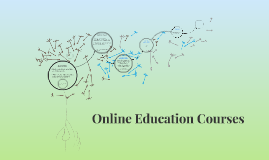BEST Courses
Transcript: BEST Courses Explore Opportunities to Study in Europe Overview of BEST Courses BEST Courses are specially designed programs that allow students to study in various European countries. They cover a wide range of subjects known for their academic excellence, ensuring a rich educational experience. Importance of Studying Abroad Studying abroad enhances one's educational background and makes students more competitive in the job market. It promotes adaptability, global awareness, and valuable soft skills that are increasingly sought after by employers. Duration and Structure Language of Instruction Cultural Integration Tips Courses in Europe typically range from 3 to 4 years for undergraduate programs and 1 to 2 years for master's programs. Many institutions incorporate practical experiences, internships, and project work into their curriculum to provide hands-on learning. Most universities offer courses in English, especially at the master's level, attracting a diverse international student population. Additionally, study programs are available in local languages, catering to non-English speakers and enhancing cultural immersion. Cultural immersion is essential; joining local clubs or language exchanges can significantly enhance the experience. Engaging in local customs not only eases adaptation but also builds valuable connections with residents. Introduction to BEST Courses Navigating Transportation BEST Courses provide a gateway for students to enhance their education through international experience in Europe. Studying abroad not only broadens academic horizons but also fosters personal growth and cross-cultural understanding. Europe boasts a well-connected transport system, including trains, buses, and trams. Students can save money by utilizing student discounts and passes, which encourage exploration and ease of travel between cities. Popular Subjects Accommodation Options Tips for Living in Europe Many European universities offer popular subjects including Business Administration, Engineering, Computer Science, and Arts. Institutions often collaborate with industries, ensuring that the curriculum is aligned with market needs, enhancing employability post-graduation. Students can choose from various accommodation types like university dorms, shared apartments, or private rentals. Research shows that living in shared spaces enhances social connections, while private rentals offer more independence. Successfully adjusting to life in Europe involves understanding accommodation, transportation, and cultural norms. These factors greatly influence the overall experience of studying abroad. Course Options Available Networking Opportunities Quality of Education Application Process Steps Applying for courses typically includes researching programs, completing an online application form, and submitting your details to desired institutions. Ensure you adhere to deadlines set by each university to secure your enrollment. European institutions are renowned for their academic excellence and innovative research. Many universities rank among the top in the world, offering internationally recognized degrees and expert faculty in various fields. Studying in Europe provides unique networking possibilities with professionals and fellow students from diverse backgrounds. Many programs include internships and collaborations with global companies, enhancing career prospects. Europe offers a diverse range of courses across various disciplines, catering to different interests and career goals. Understanding the available subjects, course structures, and language instructions is crucial for prospective students. How to Apply for Courses Understanding the application process is crucial for securing your place in European courses. This section covers the necessary steps and documentation involved, along with available financial support options. Documents Needed Financial Aid Options Essential documents for application include academic transcripts, proof of English proficiency (if applicable), a personal statement, and letters of recommendation. Each institution may have specific requirements, so verify those beforehand. In addition to scholarships, many universities offer financial aid programs tailored to international students. These may include grants, loans, or work-study options to help manage education expenses while studying abroad. Scholarships Overview Benefits of Studying in Europe Numerous scholarships are available for international students in Europe, aimed at covering tuition fees and living costs. Institutions and government bodies offer various funding opportunities based on merit or need. Cultural Exposure Studying in Europe offers a multitude of benefits, including rich cultural experiences, high-quality education, and extensive networking opportunities. Students can immerse themselves in diverse cultures while gaining valuable knowledge and connections in their field of interest. Studying in Europe allows

















